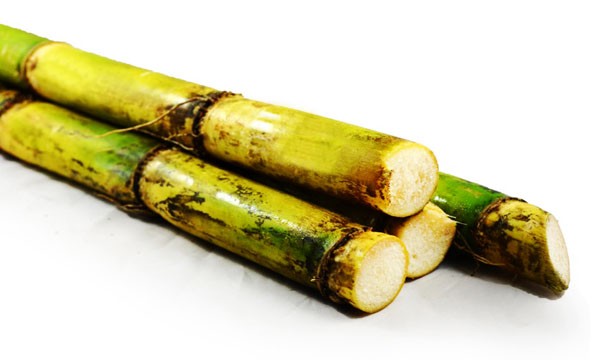Advanced Cane Sugar Processing: Enhancing Efficiency and Sustainability
Advanced Cane Sugar Processing: Enhancing Efficiency and Sustainability
Blog Article
A Thorough Summary of the Wellness and Economic Ramifications of Walking Stick Sugar Handling on Neighborhood Communities
Cane sugar processing plays an essential function in forming the economic landscape of regional communities, providing employment possibility and boosting secondary markets. Nonetheless, the health ramifications linked with high sugar intake can not be forgotten, as they add to rising prices of excessive weight and diabetes. This nuanced vibrant welcomes an important evaluation of exactly how neighborhoods can optimize economic gains while addressing the pushing health and wellness obstacles they encounter. The expedition of lasting methods and instructional campaigns may just hold the key to reconciling these contrasting passions. What techniques might neighborhoods apply to accomplish this balance?
Financial Advantages of Cane Sugar Processing
Walking cane sugar processing uses substantial financial advantages that expand beyond the immediate agricultural field. The growing and handling of sugarcane develop many work possibilities, from farming to production and circulation. This work generation not just supports regional economies but also fosters community growth by providing secure earnings resources for households.
Furthermore, the sugar sector boosts ancillary services, including transport, devices supply, and product packaging solutions (Cane Sugar Processing). As these sectors grow, they add to a much more robust financial structure, improving general area durability. The export potential of refined walking cane sugar better enhances economic advantages, positioning areas as competitive gamers in global markets
Investment in modern-day handling centers can cause increased efficiency and efficiency, thereby reducing waste and maximizing source usage. This change not only profits the regional economic climate however also supports sustainability efforts by reducing ecological impacts.
Moreover, the earnings generated from walking cane sugar handling can be reinvested in neighborhood facilities, education and learning, and medical care, promoting holistic neighborhood growth. Generally, the financial benefits of cane sugar processing are complex, supplying a structure for withstanding prosperity in farming areas.
Health And Wellness Threats Connected With Sugar Usage
Excessive sugar consumption presents considerable health risks that necessitate severe interest. High consumption of added sugars, especially from refined drinks and foods, has actually been linked to many health and wellness problems.
Moreover, high sugar usage is related to heart disease. Raised blood glucose levels can cause insulin resistance, a precursor to different heart-related problems. Furthermore, sugar can have harmful impacts on dental health and wellness, causing dental caries and gum tissue condition, as germs in the mouth flourish on sugar, creating acids that erode tooth enamel.
Additionally, emerging research study suggests a prospective link between high sugar consumption and mental health disorders, such as anxiety and anxiousness. As areas grapple with these health and wellness risks, it becomes vital to promote recognition and encourage much healthier nutritional options. Attending to sugar consumption is vital not just for specific health yet also for the overall well-being of regional areas, emphasizing the requirement for extensive public health approaches.
Ecological Effects of Sugar Production
Frequently forgotten in conversations regarding sugar's effects is the considerable environmental effect of sugar manufacturing. The farming of sugarcane commonly requires substantial land usage, bring about deforestation, loss of biodiversity, and disruption of local ecological communities. The conversion of woodlands and marshes right into sugar haciendas can cause habitat devastation, harmful countless types and changing environmental equilibrium.
Additionally, sugar production is resource-intensive, consuming considerable amounts of water for irrigation. This can cause deficiency of see local water resources, detrimentally influencing both farming techniques and community access to clean water. Additionally, using chemical fertilizers and chemicals in sugarcane farming can add to dirt deterioration and water pollution, as runoff from these chemicals goes into close-by rivers and lakes, affecting marine life and human health and wellness.
The environmental impact encompasses the handling stage, where power consumption and waste generation more intensify eco-friendly worries. Air contamination from melting sugarcane fields, in addition to greenhouse gas discharges, add to environment modification. Because of this, the environmental effects of sugar manufacturing warrant severe factor to consider, prompting stakeholders to adopt even more lasting techniques to alleviate these negative impacts on local ecological communities and neighborhoods.
Task Production and Neighborhood Development
The ecological challenges posed by sugar manufacturing are commonly counterbalanced by its possibility for economic benefits, especially in work creation and community development. The cane sugar sector functions as a considerable resource of work in lots of country areas, providing tasks throughout different ability degrees, from agricultural labor to processing and circulation roles. This employment not only sustains private households however likewise adds to the overall financial vitality of local areas.
Additionally, the establishment of sugar handling facilities promotes supplementary services, such as transport services, tools supply, and upkeep suppliers. As these businesses grow, they create added work and reinforce local economic climates. The revenue produced from the sugar market likewise brings about enhanced tax obligation profits, which can be reinvested right into area solutions such as healthcare, education and learning, and facilities advancement.
Furthermore, the sugar market commonly engages in neighborhood growth efforts, such as sustaining local institutions and wellness programs, therefore improving the top quality of life for homeowners. By cultivating solid area ties and promoting economic growth, the walking cane sugar handling field plays a crucial role in uplifting regional populations, making it an important component of lasting advancement strategies in sugar-producing areas.
Balancing Wellness and Economic Development
In navigating the intricacies of cane sugar processing, a critical obstacle lies in stabilizing health and wellness factors to consider with financial development. The sugar sector considerably adds to regional economic climates by creating tasks, stimulating associated industries, and raising tax incomes. Nevertheless, the wellness effects related to extreme sugar usage can lead to chronic diseases check my source such as weight problems, diabetes, and cardiovascular issues, which can burden public health and wellness systems and decrease labor force productivity.

Additionally, regulatory frameworks can play a critical function in assisting sector practices towards more lasting and health-conscious methods. By cultivating collaboration between federal government bodies, health and wellness organizations, and the sugar market, areas can browse the duality of wellness and economic growth, making sure that the benefits of walking cane sugar processing are equitably shared while focusing on public wellness.
Conclusion
To conclude, the processing of walking stick sugar presents both considerable economic benefits and notable health risks for regional neighborhoods. While it cultivates task production and stimulates local development, the associated health issues, specifically concerning obesity and diabetic issues, demand a cautious balancing act. By advertising responsible intake and investing in neighborhood education and sustainable techniques, it is possible to make the most of economic benefits while decreasing damaging health and wellness impacts, thereby guaranteeing a healthier future for local populations.
In addition, sugar can have damaging results on dental health and wellness, resulting in tooth cavities and periodontal disease, as microorganisms in the mouth flourish on sugar, generating acids that deteriorate tooth enamel.
Dealing with sugar usage is crucial not only for private health but additionally for the general health of regional areas, emphasizing the need for comprehensive public health and wellness methods.
Often forgotten in discussions about sugar's implications is the significant ecological influence of sugar production. The health implications linked with too much sugar intake can lead to chronic diseases such as weight problems, diabetes mellitus, and cardiovascular concerns, which can problem public wellness systems and decrease workforce productivity.

Report this page